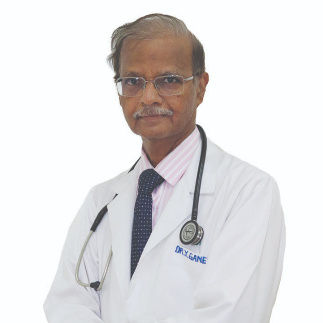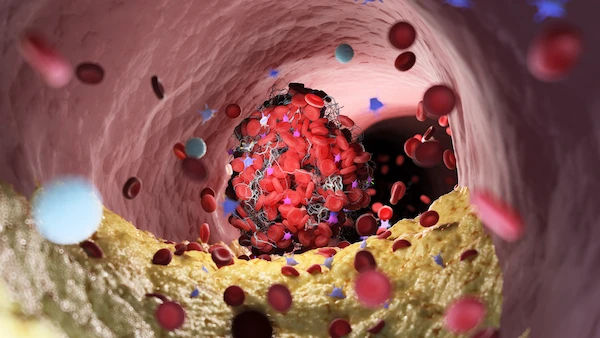Mouth Larvae: Causes and Treatment Explained
Learn about mouth larvae (oral myiasis), including causes, symptoms, treatment options, and prevention tips. Understand this rare condition and how to respond effectively to an infestation.

Written by Dr. Vasanthasree Nair
Reviewed by Dr. Mohammed Kamran MBBS, FIDM
Last updated on 28th Jul, 2025

Mouth Larvae: Causes and Treatment Explained
Nobody likes the thought of having larvae (tiny worm-like organisms) in their mouth. The idea itself can be unsettling, but understanding what causes it and how to treat it can help ease worries. If you or someone you know is experiencing this condition, don’t panic—there are ways to manage and treat it effectively.
What Are Mouth Larvae?
Mouth larvae are small, worm-like organisms that can infest the oral cavity, usually due to poor hygiene, contaminated food, or exposure to infected environments. While rare, this condition—known medically as oral myiasis—can cause discomfort and health complications if left untreated.
Common Causes of Mouth Larvae
Several factors can lead to mouth larvae infestation, including:
1. Poor Oral Hygiene: Not brushing or flossing regularly can lead to infections that attract flies, which may lay eggs in the mouth.
2. Open Wounds or Sores: Untreated mouth ulcers, gum disease, or surgical wounds can become breeding grounds for larvae.
3. Contaminated Food or Water: Consuming food or water with fly eggs can introduce larvae into the mouth.
4. Weakened Immune System: People with conditions like diabetes, HIV, or malnutrition are at higher risk.
5. Living in Unhygienic Conditions: Poor sanitation and exposure to flies increase the chances of infestation.
Symptoms of Mouth Larvae
If you suspect mouth larvae, watch for these signs:
- Visible tiny worms or moving particles in the mouth
- Pain or irritation in the gums, tongue, or cheeks
- Bad breath (halitosis) that doesn’t go away with brushing
- Bleeding gums or sores that don’t heal
- Swelling or pus in the affected area
Consult Top Specialists
How Mouth Larvae Affect Your Health?
If ignored, mouth larvae can lead to:
- Severe infections spreading to other parts of the mouth
- Difficulty eating or speaking due to pain
- Increased risk of bacterial infections
- Psychological distress due to discomfort and embarrassment
Treatment Options for Mouth Larvae
The good news is that oral myiasis is treatable. Here’s what doctors usually recommend:
1. Manual Removal: A dentist or doctor will carefully remove the larvae using specialised tools.
2. Antibiotics or Antiseptics: If an infection is present, medications may be prescribed.
3. Improved Oral Hygiene: Regular brushing, flossing, and mouthwash use can prevent reinfestation.
4. Wound Care: If open sores are present, keeping them clean and covered helps healing.
5. Surgical Intervention (in severe cases): Rarely, minor surgery may be needed to remove deeply embedded larvae.
Preventing Mouth Larvae
Prevention is always better than cure. Follow these steps to reduce the risk:
- Maintain good oral hygiene: Brush twice daily, floss, and use an antiseptic mouthwash.
- Avoid contaminated food: Ensure food is properly stored and cooked.
- Treat mouth sores promptly: Don’t ignore ulcers or gum infections.
- Keep surroundings clean: Reduce exposure to flies by maintaining hygiene at home.
- Strengthen immunity: Eat a balanced diet and stay hydrated.
When to See a Doctor?
If you notice any signs of mouth larvae, don’t delay seeking medical help. Early treatment prevents complications. You can consult a dentist or doctor on Apollo 24|7 for expert advice and care.
Conclusion
Mouth larvae, though rare, can be distressing. The key is maintaining good oral hygiene and seeking medical help if symptoms appear. With proper care and treatment, this condition can be resolved quickly.
If you have concerns about oral health, book a consultation with a specialist on Apollo 24|7 today for professional guidance and care.
Consult Top Specialists
Consult Top Specialists

Dr. Swathi Reddy Perugu
General Physician/ Internal Medicine Specialist
7 Years • MBBS, MD (General Medicine)
Hyderabad
Health plus, Hyderabad

Dr. Chethan T L
General Physician/ Internal Medicine Specialist
5 Years • MBBS, MD, DNB (General Medicine)
Bengaluru
Apollo Medical Center, Marathahalli, Bengaluru

Dr. Subashini Venkatesh
General Physician/ Internal Medicine Specialist
25 Years • MBBS., DCH, MRCGP, Dip (Dermatology), CCT
Chennai
Apollo Hospitals Heart Centre Thousand Lights, Chennai
(25+ Patients)

Dr. Promise Jain
General Physician/ Internal Medicine Specialist
20 Years • MBBS, DNB Medicine, TDD, MNAMS, PGCDM, CCEBDM, CCMTD,PGDE Senior Consultant- Internal Medicine Head- Department of critical care Apollo Sage Hospital, Bhopal, MP Intensivist, Diabetes, Thyroid , Physician
Bhopal
Apollo Sage Hospitals, Bhopal

Dr. Ganesh Yadala
General Physician/ Internal Medicine Specialist
31 Years • MBBS, MD (Int. Med.)
Hyderabad
Apollo Hospitals Jubilee Hills, Hyderabad
(50+ Patients)




